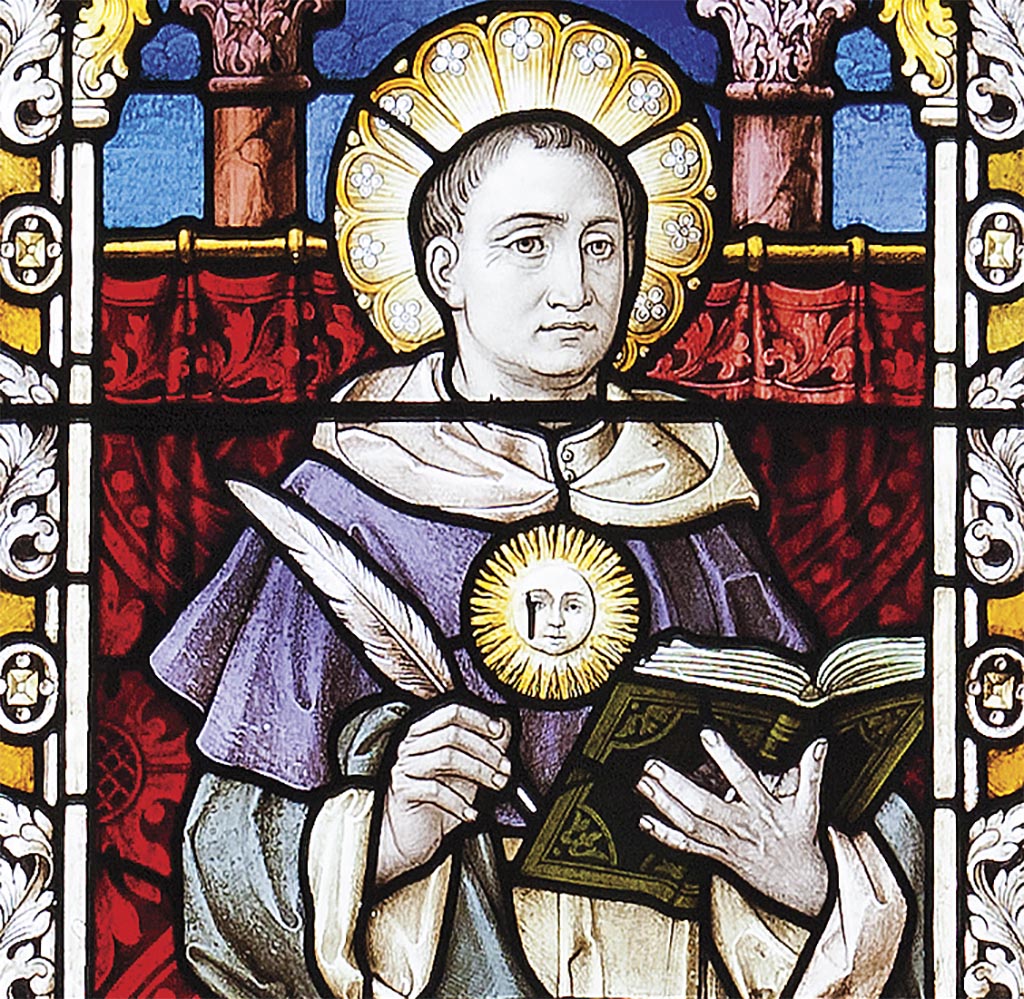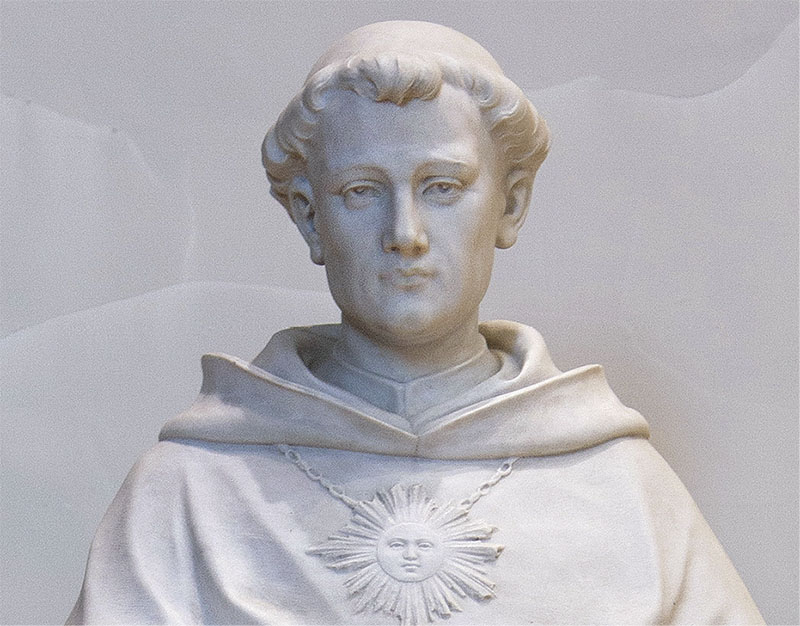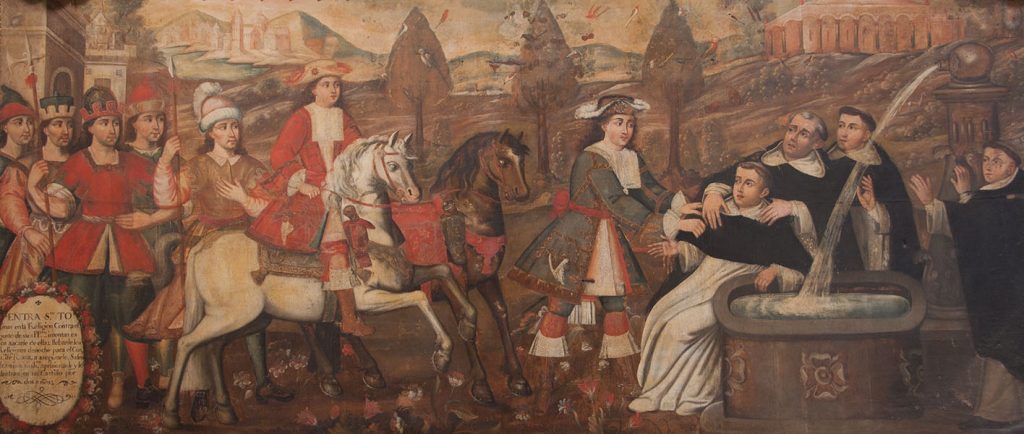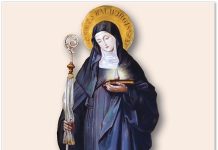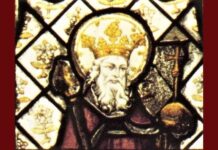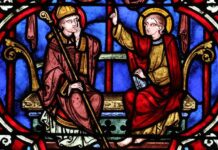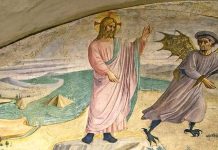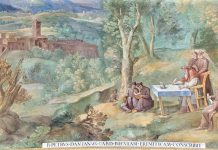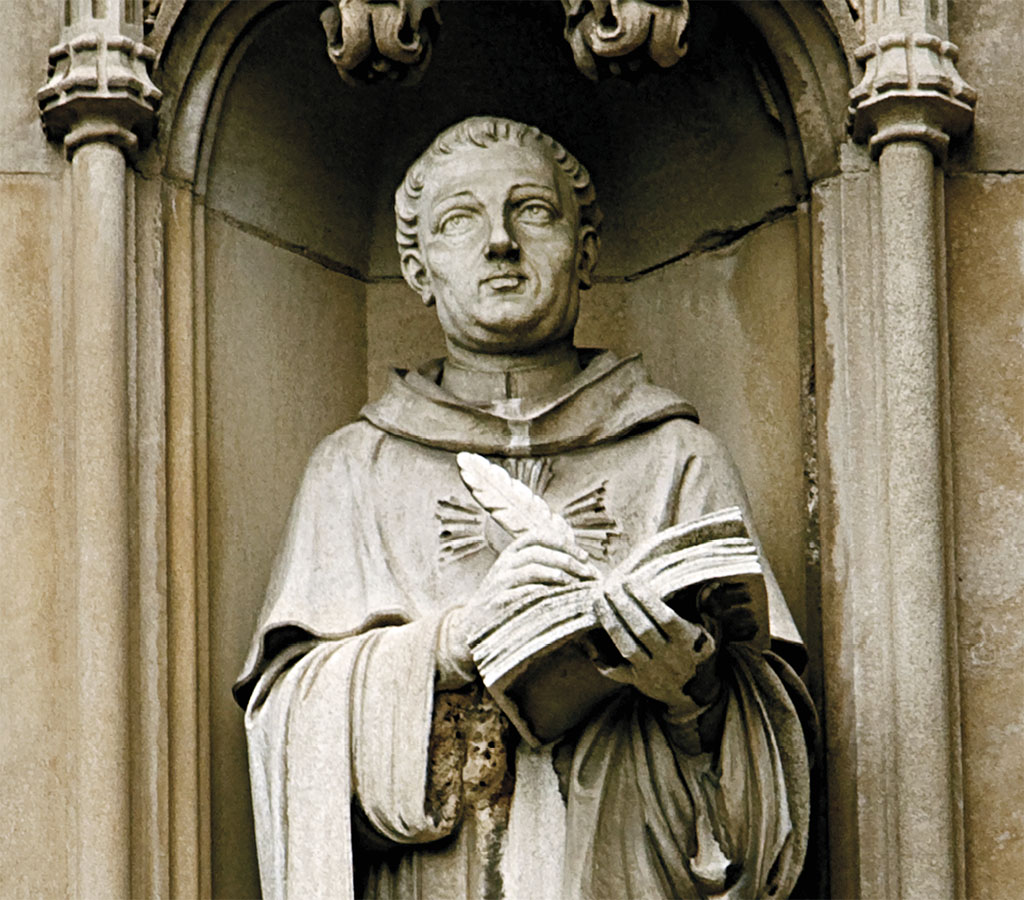 Memorial of St. Thomas Aquinas, Priest and Doctor of the Church
Memorial of St. Thomas Aquinas, Priest and Doctor of the Church
(†1274). Friar of the Dominican Order, a theology pupil of St. Albert the Great at the beginning of his studies in the University of Paris. Endowed with extraordinary intellectual gifts, St. Thomas is a luminary of the Church.
Other featured Saints
St. Julian of Cuenca, Bispo (†1207). Bishop and patron of this Spanish city. He applied himself to the growth and glorification of Christ’s Church. He supported the poor of his diocese with his own labours.
St. Joseph Freinademetz, priest (†1908). Religious of the Society of the Divine Word, sent to the missions in China where he worked tirelessly in the evangelization of those people.
St. James, anchorite (†554). A hermit in Palestine. Por penance, he made his abode in a tomb.
St. Agatha Lin Zao, virgin, St. Jerome Lu Ting mei and St. Laurence Wang Bing, catechists and martyrs (†1858). Beheaded in Macau, China, after being denounced as Christians.
Blessed Julian Maunoir, priest (†1683). Priest of the Company of Jesus who dedicated himself to popular missions in the region of Plévin, France.
Blessed Olympia Bida, virgin and martyr (†1952). Ukrainian religious from the Congregation of the Sisters of St. Joseph, she was sent to a concentration camp in Siberia where she endured grievous suffering for the love of Christ.
Mass Readings
First Reading – 2 Sm 11:1-4a, 5-10a, 13-17
At the turn of the year, when kings go out on campaign, David sent out Joab along with his officers and the army of Israel, and they ravaged the Ammonites and besieged Rabbah. David, however, remained in Jerusalem. One evening David rose from his siesta and strolled about on the roof of the palace. From the roof he saw a woman bathing, who was very beautiful. David had inquiries made about the woman and was told, “She is Bathsheba, daughter of Eliam, and wife of Joab’s armor bearer Uriah the Hittite.” Then David sent messengers and took her. When she came to him, he had relations with her. She then returned to her house. But the woman had conceived, and sent the information to David, “I am with child.” David therefore sent a message to Joab, “Send me Uriah the Hittite.” So Joab sent Uriah to David. When he came, David questioned him about Joab, the soldiers, and how the war was going, and Uriah answered that all was well. David then said to Uriah, “Go down to your house and bathe your feet.” Uriah left the palace, and a portion was sent out after him from the king’s table. But Uriah slept at the entrance of the royal palace with the other officers of his lord, and did not go down to his own house. David was told that Uriah had not gone home. On the day following, David summoned him, and he ate and drank with David, who made him drunk. But in the evening Uriah went out to sleep on his bed among his lord’s servants, and did not go down to his home. The next morning David wrote a letter to Joab which he sent by Uriah. In it he directed: “Place Uriah up front, where the fighting is fierce. Then pull back and leave him to be struck down dead.” So while Joab was besieging the city, he assigned Uriah to a place where he knew the defenders were strong. When the men of the city made a sortie against Joab, some officers of David’s army fell, and among them Uriah the Hittite died.
Responsorial Psalm – Ps 51:3-4, 5-6a, 6bcd-7, 10-11 (R.3a)
R. Be merciful, O Lord, for we have sinned.
Have mercy on me, O God, in your goodness;
in the greatness of your compassion wipe out my offense.
Thoroughly wash me from my guilt
and of my sin cleanse me. R.
For I acknowledge my offense,
and my sin is before me always:
“Against you only have I sinned,
and done what is evil in your sight.” R.
I have done such evil in your sight
that you are just in your sentence,
blameless when you condemn.
True, I was born guilty,
a sinner, even as my mother conceived me. R.
Let me hear the sounds of joy and gladness;
the bones you have crushed shall rejoice.
Turn away your face from my sins,
and blot out all my guilt. R.
Gospel – See Mk 4:26-34
Jesus said to the crowds:
“This is how it is with the Kingdom of God;
it is as if a man were to scatter seed on the land
and would sleep and rise night and day
and the seed would sprout and grow,
he knows not how.
Of its own accord the land yields fruit,
first the blade, then the ear, then the full grain in the ear.
And when the grain is ripe, he wields the sickle at once,
for the harvest has come.”
He said, “To what shall we compare the Kingdom of God,
or what parable can we use for it?
It is like a mustard seed that, when it is sown in the ground,
is the smallest of all the seeds on the earth.
But once it is sown, it springs up and becomes the largest of plants
and puts forth large branches,
so that the birds of the sky can dwell in its shade.”
With many such parables
he spoke the word to them as they were able to understand it.
Without parables he did not speak to them,
but to his own disciples he explained everything in private.


